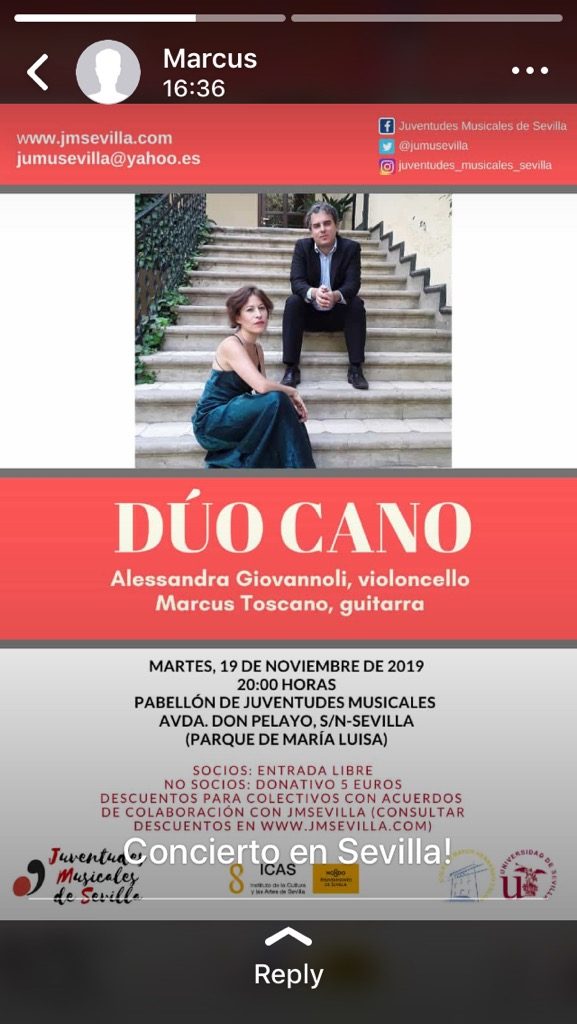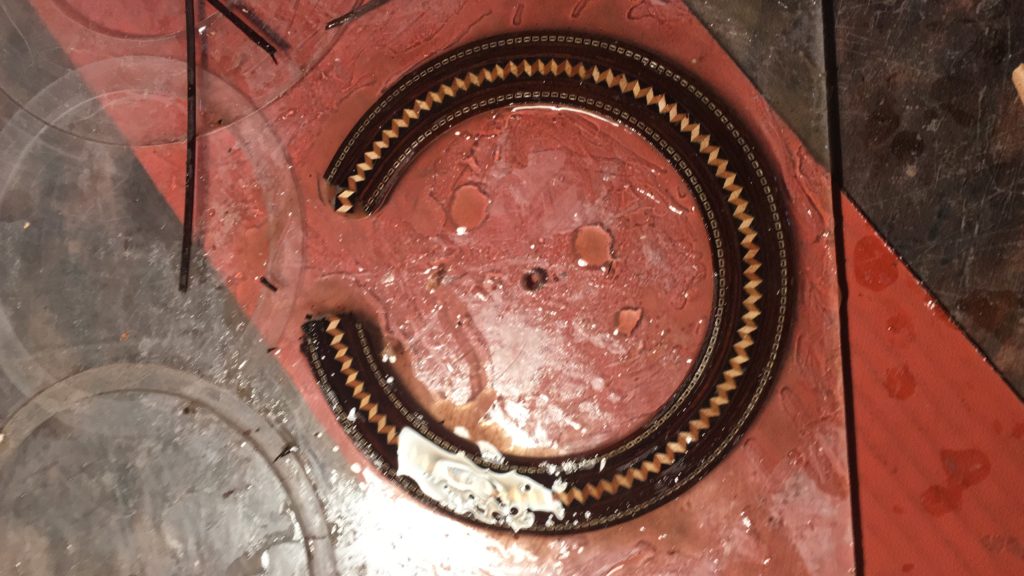This time I was reading an old copy of American Lutherie (Nº 56, 1998) and came across an article by Jeffrey Elliott. The article is very good but these words especially rang true to me. What makes players fall in love with a particular guitar is a very elusive quality but it is 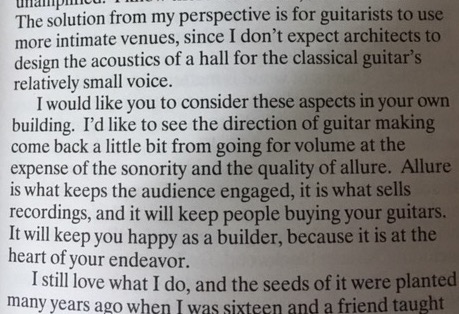 that love that helps them play their very best. A guitar must be more than a well-made tool.
that love that helps them play their very best. A guitar must be more than a well-made tool.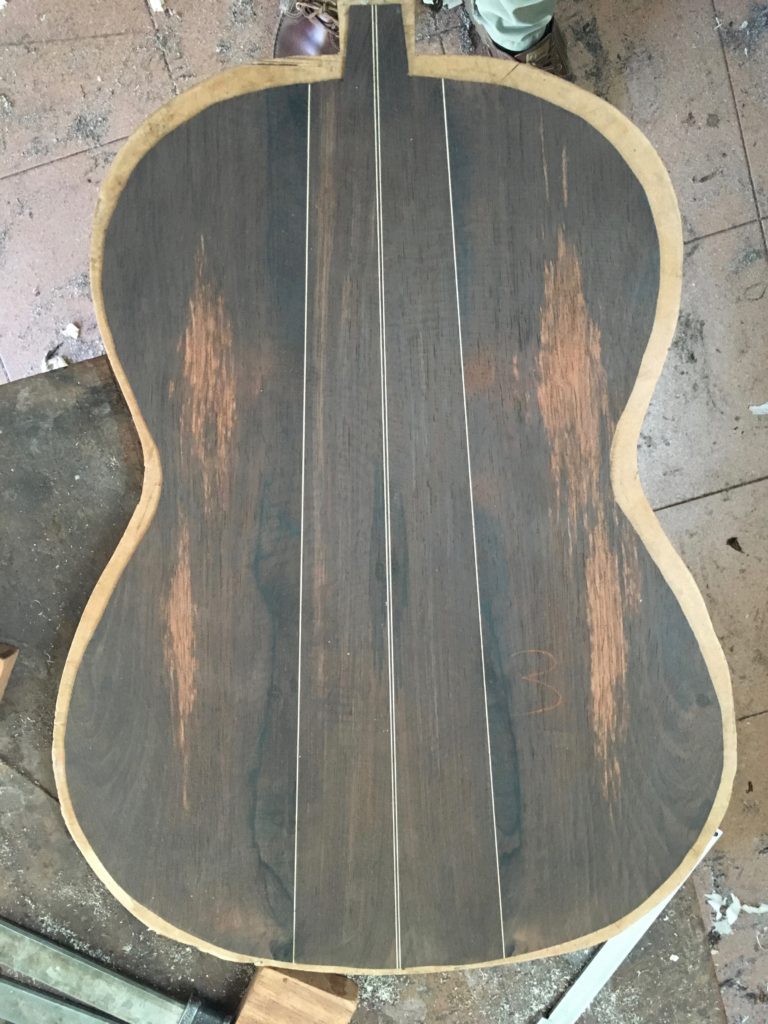
Tag Archives: luthery
Concierto en Sevilla
Exposición en la Biblioteca Musical de Madrid
La exposición, comisariada por Cristina Bordas, abre el 15 de noviembre y dura hasta abril. En conversaciones con Cristina y la directora de la biblioteca Inmaculada Seldas me he dado cuenta que tengo que sacar un día pronto para ir a Madrid a ver todo lo que van a exponer. Pulsa aquí para más detalles.
Top that!
Adiós a un maestro
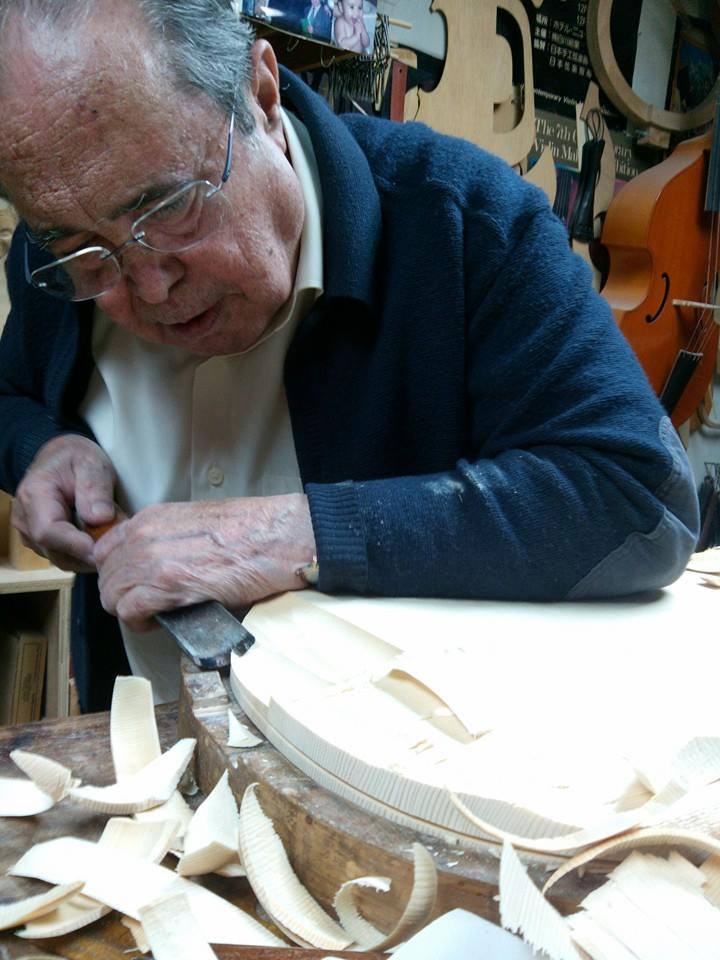 Hoy es un día triste para la luthería. José Ángel Chacón Tenllado falleció esta madrugada con 85 años plenamente aprovechados y dejando atrás una obra compuesto por multitúd de instrumentos de cuerda, artesanos formados en la luthería y una “Escuela Malagueña de Luthería” que es tanto una tradición como una realidad donde los alumnos aprenden ahora con el heredero José Ángel Chacón Escobar. Aunque yo hice mi primer instrumento aquí en Granada con cuatro consejos de Antonio Marín y Jonathan Hinves, mi primera enseñanza fue en Málaga con José Ángel. Aprendí muchísimo sobre la madera, las herramientas, historia y la cultura músical. También terminé allí la guitarra que aún conservo y toco. Hoy tendríamos que honrar la visión de José Ángel, una visión de una escuela de luthería con fondos públicos y un reconocimiento de este oficio tan importante. Hizo grandes pasos hacía una escuela oficial pero hay trabajo por hacer todavía.
Hoy es un día triste para la luthería. José Ángel Chacón Tenllado falleció esta madrugada con 85 años plenamente aprovechados y dejando atrás una obra compuesto por multitúd de instrumentos de cuerda, artesanos formados en la luthería y una “Escuela Malagueña de Luthería” que es tanto una tradición como una realidad donde los alumnos aprenden ahora con el heredero José Ángel Chacón Escobar. Aunque yo hice mi primer instrumento aquí en Granada con cuatro consejos de Antonio Marín y Jonathan Hinves, mi primera enseñanza fue en Málaga con José Ángel. Aprendí muchísimo sobre la madera, las herramientas, historia y la cultura músical. También terminé allí la guitarra que aún conservo y toco. Hoy tendríamos que honrar la visión de José Ángel, una visión de una escuela de luthería con fondos públicos y un reconocimiento de este oficio tan importante. Hizo grandes pasos hacía una escuela oficial pero hay trabajo por hacer todavía.
Today is a sad day for those of us who live by the chisel and the plane. José Ángel Chacón Tenllado passed away early this morning at the age of 85 having lived a full life and leaving behind a legacy that any luthier would be proud of. He founded the “Escuela Malagueña de Luthería”, taught many a builder, and built hundreds of stringed instruments. His son José Ángel Chacón Escobar carries on the tradition and continues to teach students at the family workshop. Although I built my first instrument here in Granada with a few consultations with Antonio Marín and Jonathan Hinves, the first person to take an interest in teaching me was José Ángel in Málaga. I learned so much about wood, tools, history and musical culture. I also built my first guitar and I still have it and play it.
In the video above you can see that he was named Maestro Artesano by the regional government (the first luthier to have that honor), he earned the medalla de plata al mérito de las bellas artes from the Ministry of Culture. He also wrote two books on the subject of lutherie. He was a man with a vision and that vision was of an official school of lutherie and public support for it. He achieved great things both in Málaga and in Gelves, Sevilla but Spanish governments still refuse to value lutherie in the way it is valued all over the world.

